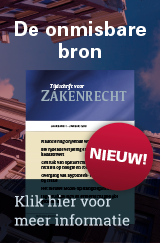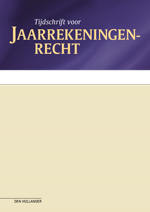‘Integrated Reporting - To measure is to know’ Conference report ‘Integrated Reporting - Measuring = Knowing’, 30 May 2012, Rotterdam
dr. T.E. Lambooy, mr. W.W.C.I.G. Bijveld en S. van ‘t Foort*
Introduction
The interest of market participants in the connection between a company’s financial performance and its sustainability strategy is growing. This conference report reflects the legal, accounting and business perspectives discussed during a conference held earlier this year on this topic. The conference was organised jointly by three universities and a big-4 accounting firm to explore the subject of ‘integrated reporting’ (IR) from an academic and practitioners’ perspective.1 The conference was chaired by Marleen Janssen Groesbeek.2
Artikel kopen € 79,00 excl. BTW
In plaats van abonneren kunt u dit artikel ook afzonderlijk kopen.
The growing interest in the connection between the financial performance and the sustainability strategy of a company is recognized by academics. Scholars of the Harvard Business School confirm that the market has a strong desire to gain an overall sense of how well a company is integrating sustainability into its strategy and operations.3 They predict an exponentially increasing expectation that a company provides transparency about its Environmental, Social and Governance (ESG) performance and that it elaborates on the linkage with its financial performance.
Various developments draw the attention to IR.4
Firstly, in 2010, the Johannesburg Stock Exchange codified the King III recommendations by amending its listing rules to require listed companies to produce an integrated report (instead of their annual financial report and sustainability report) or explain why they are not doing so.5 The King III recommendations defined IR as ‘a holistic and integrated representation of the company’s performance in terms of both its finance and its sustainability’. It was explained that the overarching objective of an integrated report is ‘to enable stakeholders to assess the ability of an organisation to create and sustain value over the short-, medium- and long-term.’ The users of the report should be able to determine whether the organisation’s governing structure has applied its collective mind in identifying the environmental, social, economic and financial issues that impact on the organisation, and to assess the extent to which these issues have been incorporated into the organisation’s strategy’.6
Secondly, the International Integrated Reporting Council (IIRC) was officially launched in August 2010 (as the International Integrated Reporting Committee), with the aim of publishing a framework for a global integrated reporting model that conveys a firm’s strategic objectives, governance and business model, integrates both financial and non-financial information, and is comparable across markets.7 It promotes that integrated reports provide material financial and ESG performance information and illustrate the linkages between the two. Companies, through IR, will be better able to demonstrate how their financial and non-financial performance supports the move towards a more sustainable society. The IIRC has held initial meetings and consultations and has now embarked on a pilot programme that will inform the development of an integrated reporting framework.
Thirdly, quality integrated reporting is expected to add value and meet investor demands for greater sustainability.8 Hence during the Rio+20 meetings in Brazil9, a number of stock exchanges have set up the ‘Sustainable Stock Exchanges’.10
Fourthly, the European Union has an obligation to integrate environmental protection requirements into the definition and implementation of the Union policies and activities, in particular with a view to promoting sustainable development (Article 11 TFEU). Hence integrating sustainability themes in the annual financial reporting is a challenge for the EU to explore. For some years, the European Commission has been working on this theme. Various stakeholders’ and experts’ meetings have been held, in which the question was discussed in which way non-financial information can be integrated in the EU corporate annual reporting legislation. In 2011, the European Commission has adopted the ‘CSR Action Plan’ in 2011,11 in which the ambition has been communicated that: ‘There are a number of international frameworks for the disclosure of social and environmental information, including the Global Reporting Initiative. Integrated financial and non-financial reporting represents an important goal for the medium and long term, and the Commission follows with interest the work of the International Integrated Reporting Committee. In order to ensure a level playing field, as announced in the Single Market Act the Commission will present a legislative proposal on the transparency of the social and environmental information provided by companies in all sectors. (...) The Commission is also developing a policy to encourage companies to measure and benchmark their environmental performance using a common lifecycle based methodology that could also be used for disclosure purposes.’
Finally, practice shows that annual reporting on non-financial information by companies is becoming more frequent. However, the production of comparable and verified corporate non-financial information is still being impeded by the lack of a generally accepted framework and mandatory reporting standards. This is where the concept of IR comes into play: it aims to provide a framework and reporting standards for the integration and presentation of financial and non-financial information. This conference report discusses IR as it is today in practice and how it relates to the existing legal and accounting frameworks.
U heeft op dit moment geen toegang tot de volledige inhoud van dit product. U kunt alleen de inleiding en hoofdstukindeling lezen.
Wanneer u volledige toegang wenst tot alle informatie kunt u zich abonneren of inloggen als abonnee.


